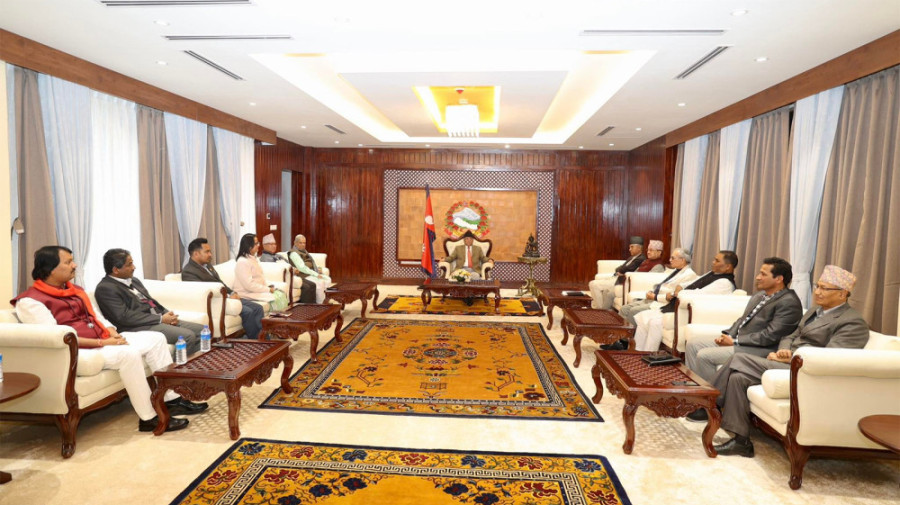Editorial
Divide to rule
The ‘bhagbanda’ politics is undemocratic to the core and an impediment to the country’s growth.
If one word succinctly describes the rot in contemporary Nepali politics, it is bhagbanda, or the culture of distributing power and perks based purely on self-serving political calculations. The culture seems to run in the veins of our politicians. Ideally, bhagbanda should mean a distribution of the state’s resources equitably, based on the ideas of justice and fairness. But in contemporary Nepali politics, bhagbanda culture is a different ball game altogether; here, qualification and democratic values are of secondary importance, as is evident in the appointments to various state institutions, ranging from judiciary to ministries, and from constitutional bodies to the President’s Office. Fair competition based on ideology and conviction seems to be a thing of yore as leaders have turned politics into a game of arithmetics whose only intended result is to get hold of executive power.
The latest iteration of the bhagbanda culture began at the end of December last year when Maoist supremo Pushpa Kamal Dahal started running between Baluwatar and Balkot in his pursuit of the prime minister’s post. Frustrated by Sher Bahadur Deuba’s refusal to give him the prime minister’s position in line with a prior commitment, Dahal sealed a deal with KP Sharma Oli and various other parties, including the Rastriya Prajatantra Party and the Rastriya Swatantra Party, to form a coalition government. But the coalition came crashing down in just two months after Dahal and Deuba again agreed to revive their old bhagbanda deal. Hence the dramatic turnaround in politics, with the ouster of the UML and the Rastriya Prajatantra Party from the Dahal government.
Prime Minister Dahal now leads a coalition government backed by 10 political parties of various hues and sizes, all of which are drooling for plum cabinet positions. Visibly weighed down by the burden of dividing the pie of power among his supporters, Dahal wants to wait until he gets the vote of confidence, for he has no confidence that his partners will continue to support him once the bhagbanda of ministries is over. No wonder Dahal presides over almost a dozen and a half ministries even as the government’s functioning suffers in the absence of dedicated ministers. The bhagbanda culture has damaged the country’s democratic fabric so much that Dahal recently had to assure top bureaucrats that the goings-on in the coalition would not hamper their work.
The current coalition’s bhagbanda politics recently developed a crack with the confusion over the nomination for the Vice President’s post, the election for which is slated for Friday. The Janata Samajbadi Party (JSP) had earlier supported Dahal in the hope of getting the Vice President. If it did so, a way would have opened up for party chief Upendra Yadav to compete in by-elections in his bid to enter Parliament. The party then proposed yet another Vice President candidate as a backup option. The Janamat Party, meanwhile, nominated its own insider Mamata Jha to counter the JSP’s nominees although it is a partner with the JSP in the ruling coalition.
That the parties with minuscule shares in votes for presidential elections would seek big parties’ votes for their candidates suggests how deeply the bhagbanda culture is ingrained in Nepali politics. But the calculative bhagbanda politics is undemocratic to the core, and is an impediment to the country’s nascent democracy and its growth and prosperity. The political actors who identify themselves as democrats should wean themselves off this corrosive culture if they are serious about protecting the democracy they together fought for.




 18.12°C Kathmandu
18.12°C Kathmandu














